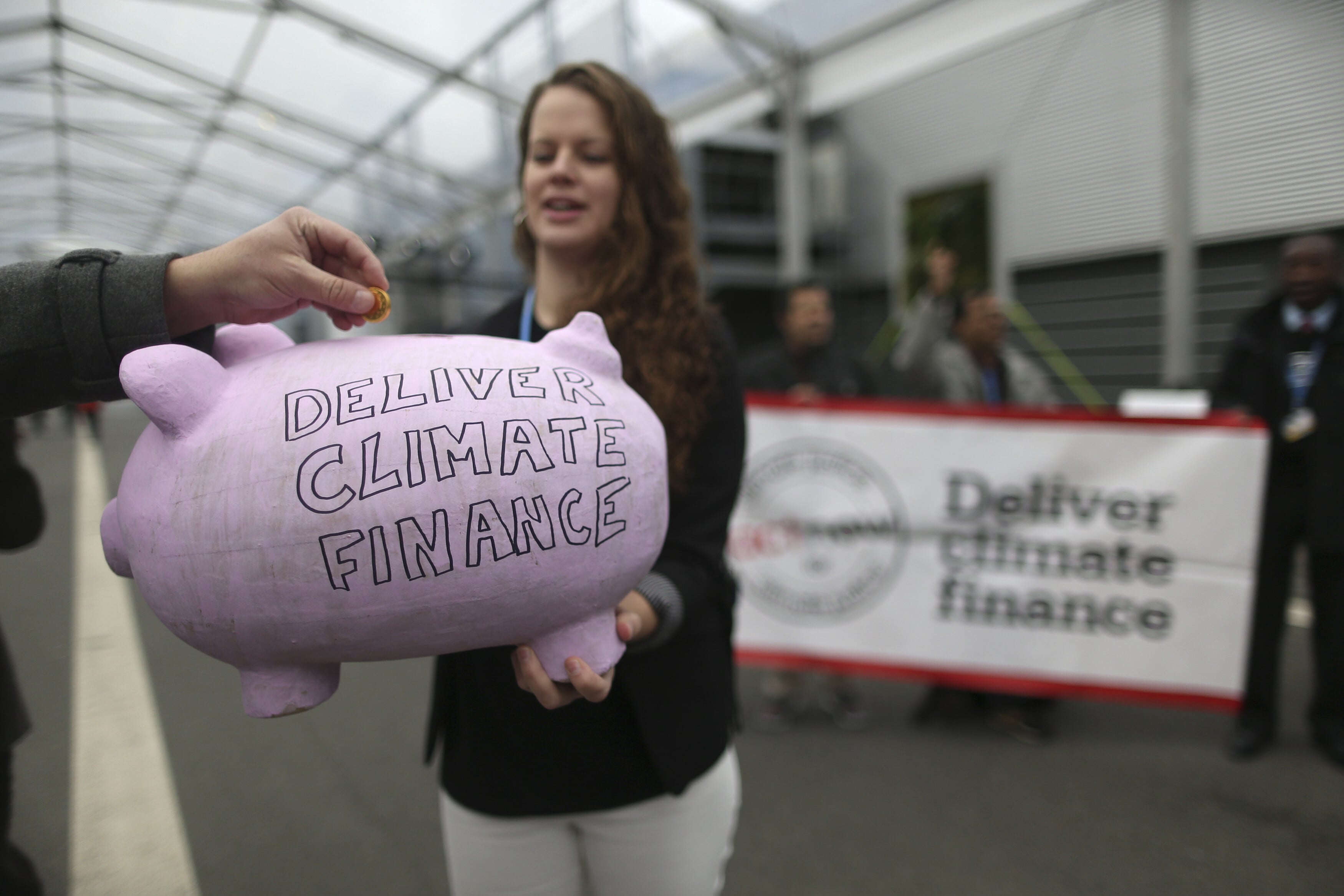Too hot to work? What climate change means for jobs

Climbing temperatures will make it harder for people to do their jobs, particularly in the world’s poorest economies.
Image: REUTERS/Jorge Silva
Stay up to date:
Economic Progress
Global warming will cost the world more than $2 trillion a year in lost productivity by 2030 as it becomes too hot to work in many sectors, according to new research.
The figures suggest that climbing temperatures will make it harder for people to do their jobs, particularly in the world’s poorest economies. The situation is worst for those in the lowest paid and most heat-exposed professions, such as construction and farming.
The report says that India and China together stand to lose $450 billion in output by 2030. The economies of richer nations, such as Japan and the UK, are unaffected by heat stress and the US saw only a modest dip of 0.2% of GDP.

The researchers, led by Tord Kjellstrom of the Health and Environment International Trust in New Zealand, projected the GDP losses due to heat stress for 43 countries using environmental data and computer models. Their results appear in the Asia-Pacific Journal of Public Health.
Asia and Africa will suffer the most, according to Dr Kjellstrom. In South-East Asia, 15-20% of annual work hours are already lost in heat-exposed jobs. That may double by 2050 as global warming continues. In Malaysia, for example, work normally slows or stops during the hottest times of the day or year to avoid dangerous heat stress.
We know that the world is getting hotter. What we don’t know is how much hotter it will get. That will depend on what action is taken to tackle climate change in the coming years.

Dr Kjellstrom, told The Independent: “Beyond 2050, it will make a big difference if we take action now to reduce greenhouse gas emissions globally.”
He said some countries appeared to be planning simply to cope with the coming changes, rather than trying to prevent them.
“A lot of countries have focussed in the last few years on adaptation, with the impression that we can find methods to adjust to the future changes in climate … and protect people and protect our societies,” Dr Kjellstrom said.
“I think personally that the need for mitigation, which means to reduce climate change, has not been given enough focus.
“It’s quite urgent because the action needs to be taken now, not 40 years from now.”
Shifting work schedules to beat the heat, along with higher demand for air conditioning, could make people less heat tolerant, the researchers warn. That then raises the costs associated with heat stress. A city like Bangkok, for instance, needs an extra 2,000 MW, roughly the output of a major power plant, for every 1°C rise in temperature.
In 2015, over 190 countries agreed to keep temperatures “well below” a 2°C increase and to “pursue efforts” to keep it even below 1.5°C. However, major countries such as China have yet to ratify the agreement.
Don't miss any update on this topic
Create a free account and access your personalized content collection with our latest publications and analyses.
License and Republishing
World Economic Forum articles may be republished in accordance with the Creative Commons Attribution-NonCommercial-NoDerivatives 4.0 International Public License, and in accordance with our Terms of Use.
The views expressed in this article are those of the author alone and not the World Economic Forum.
Related topics:
Forum Stories newsletter
Bringing you weekly curated insights and analysis on the global issues that matter.
More on Climate ActionSee all
Wee Kean Fong and Yvonne Zhou
July 29, 2025
Pranidhi Sawhney and Adam Skali
July 29, 2025
David Carlin and Sourajit Aiyer
July 28, 2025
Nasim Pour, Sebastien Cross and Joel Gould
July 28, 2025
Michael Wang
July 28, 2025
Naoko Tochibayashi
July 28, 2025





